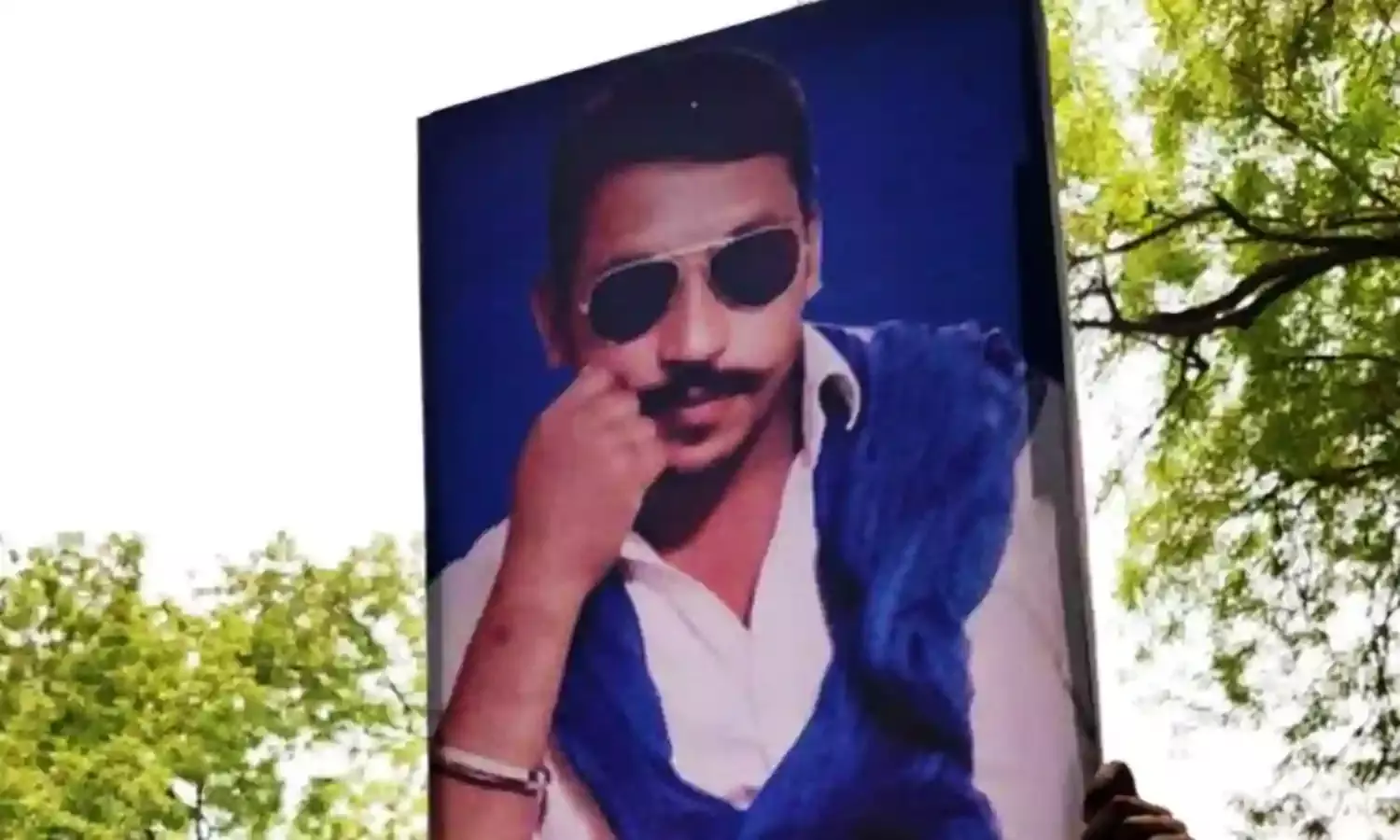'Dalit Anger Is On The Rise, Govt Had No Choice But To Release Chandrashekhar'
SR Darapuri on Chandrashekhar's release
NEW DELHI: Bhim Army co-founder Chandrashekhar Azad, alias ‘Ravan’, an activist and Dalit leader, and a lawyer by training, was released from custody by the Uttar Pradesh government earlier today.
Azad had been named as an accused by state police for his alleged role in instigating protests by members of the Dalit community in Saharanpur in May 2017.
The district had seen clashes between Thakurs and Dalits, who had objected to loud music being played by the upper-caste Thakurs during a procession to honour Rajput ruler Maharana Pratap. This led to protests and riots.
24 Dalit homes were set on fire.
Arrested by the UP government for instigating and promoting caste violence, Azad was granted bail by the Allahabad High Court last November. The court noted that the arrests were politically motivated, but Azad remained in the state government’s custody under the National Security Act (NSA).
The NSA, enacted in 1980, has become a coercive tool to adopt unconstitutional measures and deprive individuals of their constitutional and statutory rights. It provides for ‘preventive detention’ or the extra-judicial confinement of an individual, without charge, for up to one year without legal remedy.
After his release, Azad was vocal against the current regime. Speaking to reporters he said, “Voting for the Bharatiya Janata Party is jeopardising your future generations. I will appeal to everyone in the country that they should not under any circumstances vote for the BJP in 2019.”
The Citizen spoke to S.R. Darapuri, retired IPS officer and national spokesperson of the All India Peoples Front, about Azad’s release. “It is a ‘critical compulsion’ and the government had to do it,” said Darapuri. “By releasing him early the central and state government is trying to counter the anger among Dalit communities. There have been a lot of anti- feelings among Dalits. Dalit anger is on the rise. The false arrest of Chandrashekhar, or the way the central government is playing with the SC/ ST Act are just a few examples which have lead to the rise of anger among Dalit communities.
Darapuri added, “Dalit youths are disenchanted with the traditional Dalit politicians and their governments. These senior Dalit politicians are self-serving. They haven’t taken up the Dalit agenda causing further disenchantment among Dalit youth, who want to fight for their rights. They have adapted to the struggle mode and in Chandrashekhar, they see a leader.
“If Chandrashekhar goes into politics and continues along these radical lines and agenda, he will definitely create a new spectrum in Dalit politics. It would be a welcome step, if he keeps up on these radical lines.”





